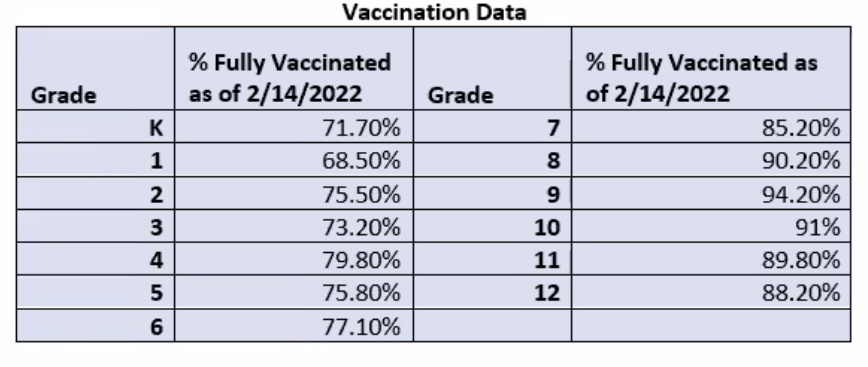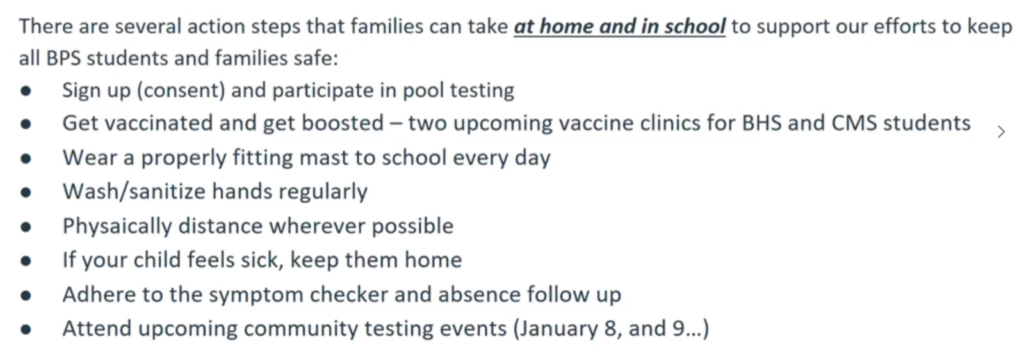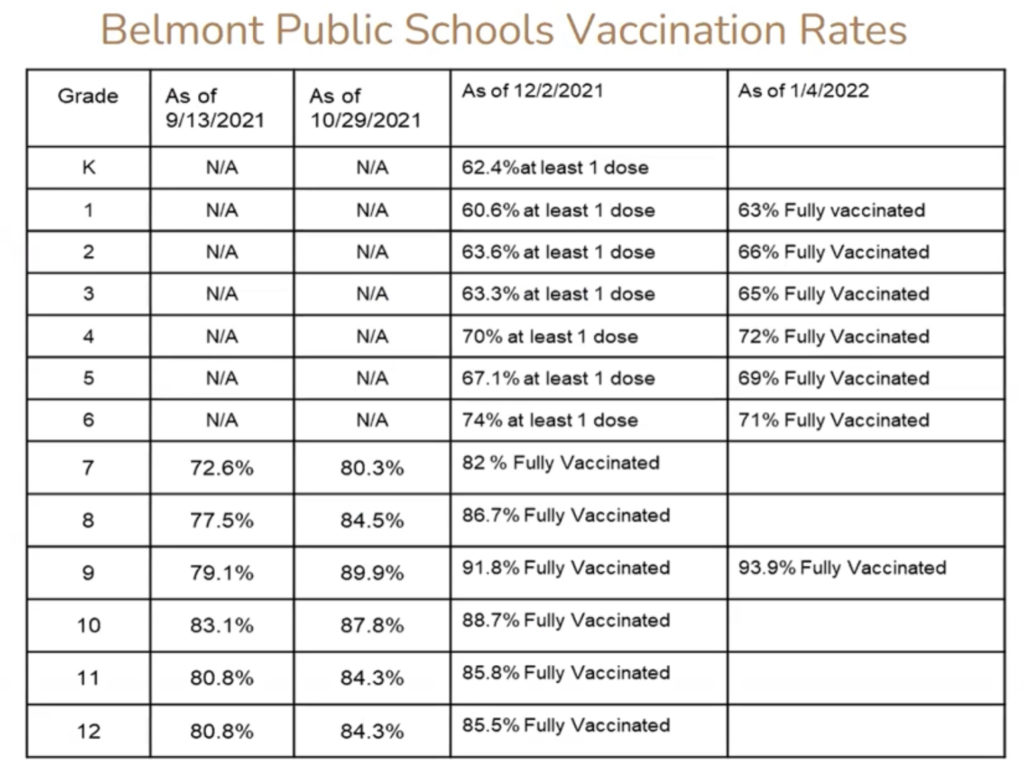Photo: Masks are no longer required in Belmont schools and at indoor spaces.
Beginning at midnight on Tuesday, March 8, Belmont’s town wide Covid-19 mask mandates for schools and indoor public settings are suspended after both the Select Board and School Committee voted unanimously to accept the recommendation of the Board of Health.
The three bodies, which met and voted in rapid succession Monday evening, effectively ends two years of wearing face coverings which began in March 2020 at the start of the pandemic with a short reprieve in late summer between surges of the coronavirus.
While the mandate has ended, the Health Board “highly recommends” children under the age of five – who can not receive a vaccination – and unvaccinated residents of any age to continue wearing masks. For public school students, masks are no longer be required riding school buses but they will continued are still required to wear masks in the nurses’ offices.
Although the mask mandate has been lifted for indoor spaces, businesses may choose to continue mask use for their establishments.
“Knowing that this decision will be applauded by some and met with disappointment by others, I would ask all of us to respect each other’s choices, and to proactively encourage our children to do the same.,” said John Phelan, Belmont’s Superintendent of Schools, in an email sent out to parents minutes after the Select Board vote.
The Health Board pointed to reduced transmission rates, high vaccination status and wider availability of testing as the main reasons for lifting the requirement. The Health Department’s Lindsey Sharp kicked off its Zoom presentation before more than 60 residents highlighting recent Covid-related data showing Belmont and Middlesex country now in a post-surge environment.

Sharp said Belmont’s average positivity rate for the first week in March at one percent, a significant reduction from the 6.4 percent rate during the surge in December and January while the pooled positivity rate in Belmont schools plummet from 15.3 percent in the second week of January to 2.5 percent one month later. Resident vaccination rates in Belmont increased from 55 percent in October 2021 to 83 percent in February with students hovering at 90 percent for middle and high schoolers and in the 70s for the lower grades.
“The numbers are looking great,” said Sharp.
During the public comment session, the remove-the-mandate residents said the science supported an end of the requirement.
”I clearly see that the time is right to remove the mandate,” said Patrick Whittemore.
Others, such as Nancy Snyder, said “there is no risk to keep (the mandate)” as it makes her and her friends “feel safe.”
The board members were in agreement to remove the mandate while pondering whether it should continue for children under the age of five. Rather than create confusion and noting the very low hospitalization rates, the board said it would “strongly recommend” than require masks for that group.
The board voted to “suspend” the mandate policy rather than striking it so when a time comes during another surge or a new virus emerges the board will be able to reinstate the policy quickly. In addition, the board approved an automatic reintroduction of the mask mandate if Middlesex county returns to a “high” level according to CDC guidelines.
Both the School Committee and Select Board took up the recommendations and voted to accept them. There was one change from the Select Board, rewriting the Health Board’s “automatic” reinstatement of the mask mandate to one where the Select Board would take a vote after reviewing the data, which the Health Board accepted.




